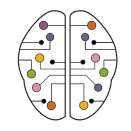Riesgos de la 5-MeO-DMT
¿Cuáles son los riesgos del 5-MeO-DMT?
Estoy muy interesado en explorar los enteógenos. Pero me preocupan los riesgos del 5-MeO-DMT. Me preocupa si hay algún peligro. Nunca he leído sobre muertes o complicaciones graves.
Pero los numerosos informes de viaje mencionan irregularidades en la respiración, tener que acordarse de respirar, personas con la cara un poco azul, frecuencia cardíaca o presión arterial extremadamente elevadas, sentirse como un elefante al sentarse sobre ti…
Sin embargo, he leído que la LD50 es muy alta, mucho más alta que la dosis activa. Entonces mi pregunta: ¿están todos estos efectos físicos en la cabeza de las personas? ¿Es el 5-MEO-DMT tan seguro como el NN-DMT o existen peligros reales?
La 5-MeO-DMT (5-Metoxi-dimetiltriptamina=) es un componente psicoactivo que aparece en algunas plantas del continente americano. Algunos ejemplos son el Yopo (semillas de Anadenanthera colubrina), la Epena (de Virola spp.), y algunas infusiones tipo ayahuasca.
Es conocido por sus intensos efectos psicodélicos, que son más intensos y de menor duración en comparación con los de la DMT (N,N-Dimetiltriptamina).
Efectos:
Los efectos de la 5-MeO-DMT son generalmente de muy corta duración, típicamente de 20 a 30 minutos cuando se aunque la experiencia subjetiva puede sentirse mucho más larga. Los efectos pueden incluir intensas experiencias visuales y auditivas, la sensación de trascender el tiempo y el espacio, profundos sentimientos de unidad y conexiones espirituales
Vías de administración:
Fumada e intranasal
Riesgos de la 5-MeO-DMT:
- Potencia: La 5-MeO-DMT es extremadamente potente, y las dosis eficaces son muy pequeñas, lo que hace que sea fácil sobrepasar la dosis segura. La dosificación es particularmente complicada. Depende de factores como la fuente de la sustancia, susceptibilidad individual, vía de administración, técnica… De forma general podemos distinguir dosis
- Bajas: 2-5 mg
- Medias: 5-10 mg
- Altas: 10-20 mg
- Variabilidad en la experiencia: Las reacciones pueden variar drásticamente de una persona a otra, haciendo que las experiencias sean impredecibles.
- Riesgo psicológico: Existe el riesgo de efectos adversos psicológicos, incluyendo ansiedad intensa, paranoia y experiencias aterradoras (a veces denominadas «malos viajes»). Las personas con problemas de salud mental preexistentes deberían proceder con extrema precaución, ya que la 5-MeO-DMT puede exacerbar estos estados.
- Interacciones: Como con muchas sustancias psicoactivas, la 5-MeO-DMT puede interactuar negativamente con una variedad de medicamentos y otras drogas.
- Especialmente aquellos que afectan los niveles de serotonina en el cerebro, como los antidepresivos, los ISRS y los IMAO. Esto se debe a que la combinación de 5-MeO-DMT con estas sustancias (particularmente IMAO) podría provocar el síndrome serotoninérgico. Esta es una afección potencialmente mortal caracterizada por altos niveles de serotonina en el cuerpo.
- Además, el uso de estimulantes como las anfetaminas y la cocaína puede aumentar el riesgo de efectos adversos asociados con el 5-MeO-DMT. Esto incluye hipertensión y taquicardia.
Otros aspectos:
- Sensibilidad individual: La respuesta a la 5-MeO-DMT puede variar entre individuos. Algunas personas pueden tener experiencias significativas con dosis muy bajas, mientras que otras pueden requerir más para alcanzar efectos similares.
- Entorno controlado: Dada la potencia de la 5-MeO-DMT y el potencial para experiencias intensas o abrumadoras, es importante que su uso se realice en un entorno seguro y controlado. Se recomienda la presencia de un cuidador o guía experimentado.
- Incremento gradual: Si se decide experimentar con 5-MeO-DMT, es crucial comenzar con la dosis más baja posible y aumentar gradualmente en sesiones separadas, nunca durante la misma sesión, para evaluar la tolerancia individual.
- Legalidad y pureza: Además, es esencial estar informado sobre la legalidad de la sustancia en tu jurisdicción y asegurarse de la pureza y calidad del producto, ya que las impurezas pueden afectar la seguridad y los efectos de la experiencia.

Thanks
Thanks for feedback
Please provide me an example on what you consider "dubious"
I share your level of appreciation for the work you've produced. The sketch you've displayed is elegant, and the content…
Somebody essentially help to make significantly articles I'd state. This is the first time I frequented your web page and…